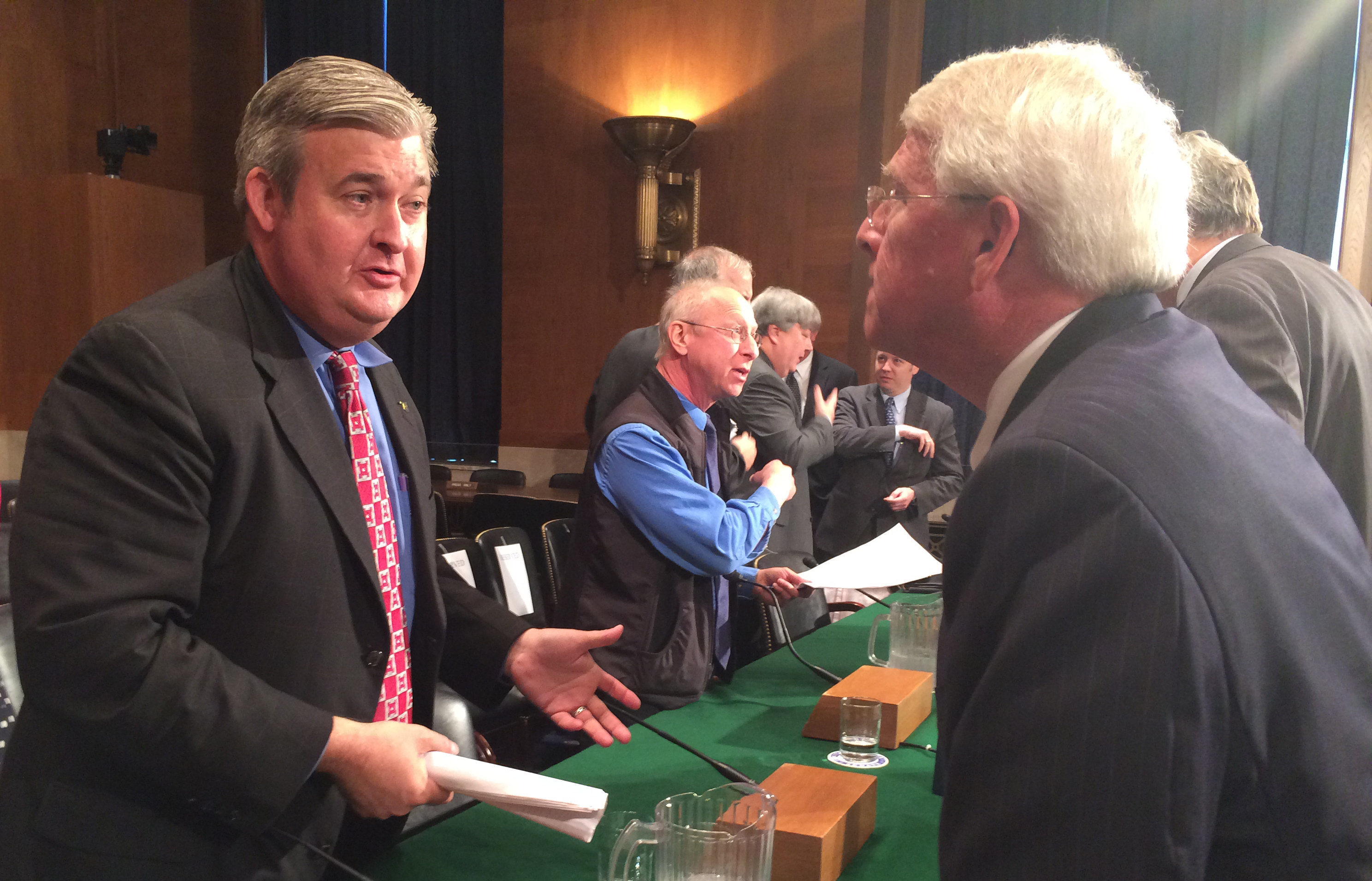WASHINGTON–This year’s wheat crop will likely be the first crop failure that Clay Pope, an Oklahoma farmer and rancher, has ever seen.
And it’s not just because of drought, but also a factor of long-term climate change, Pope said Tuesday before a Senate Environment and Public Works subcommittee.
Wildlife officials and agriculture industry spokesmen told the Senate panel about the impact the changing climate has had on their industries – fisheries, wheat, cattle and timber.
“Across the board we’re seeing changes,” said Dan Ashe, director of the U.S. Fish and Wildlife Service. Citing a 2012 study of cold-water fisheries, Ashe said the trout and salmon industries would suffer major losses by 2100. “We could see a reduction in as much as $6.5 billion [in losses] in economic activity.”
These economic setbacks s already seem real to Daniel Cohen, owner of Atlantic Capes Fisheries. The company operates branches that farm scallops in the Pacific Northwest and British Columbia, Canada. Cohen’s fish farm in B.C. experienced a $10 million loss in last year because 90% of its sea scallops died following what he believes was changing acidity in the water.
In Oklahoma, low crop yield isn’t just hitting farmers, it’s affecting the economy of entire communities across the state, said Pope, executive director of the Oklahoma Association of Conservation Districts.
Many scientists say the earth is gradually warming, leading to extreme weather conditions in both winter and summer.
Sen. Jon Tester, a Montana Democrat and a third-generation farmer, talked about the implications of climate change that he’s seen personally on his family farm. He told of recent hailstorms, an extreme weather event his father’s generation seldom saw.
“I say this because it is what I have seen on the farm,” said Tester.
Not all senators at the hearing agreed on the negative impact of climate on industry.
Senator Roger Wicker, a Mississippi Republican, said his home state is enjoying high crop yields.
“Farmers have been managing their crops effectively and adapting to variable climate condition for generations and generations,” he said. “This is nothing new.”
Sen. Jeff Merkley, an Oregon Democrat, chaired Tuesday’s hearing and noted the timing of the hearing the day after the announcement of President Barack Obama’s plan to reduce harmful emissions at coal-fired power plants.
“Change is on the ground right now…it’s no longer a hypothetical,” he said. “These are real jobs and real impacts on this generation and on the next.”


